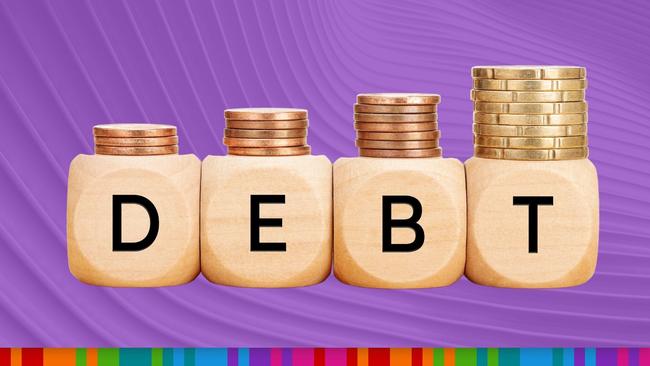HELP debt index is going up, but don’t panic yet
HELP-HECS debt is going up to reflect a rising inflation, but what does that mean for you?

Interest Rates
Don't miss out on the headlines from Interest Rates. Followed categories will be added to My News.
Yet another consequences of rising rate of inflation, are increasing HECS-HELP debts. While that may send you into a panic, it may not be the worry that you think it is.
The HECS-HELP debt will be indexed by 3.9 per cent on June 1 this year. These interest-free loans are indexed every year – which adjusted according to inflation – but won’t be the same number that you hear people talking about on the news.
“It’s the average of the last two years’ worth of quarters,” retired financial adviser, host of the my millennial money podcast and author of Sort Your Money Out & Get Invested, Glen James, told news.com.au.

“They don’t just go, ‘Oh, the inflation rate in March 2022 is 5.1 per cent, so therefore in June HECS-HELP will be indexed at 5.1 per cent. They smooth it out over the last two years so it’s not unfair if there’s a spike in inflation for just one quarter”.
Regardless, 3.9 per cent sounds like a large jump – and it is. In fact it’s the largest single increase we’ve had for more than a decade. However, James says that overall there’s still no cause for alarm.
“There’s no reason for panic if you have HECS/ HELP debt,” he said. “You’ve got to remember if you look at the last 10 years of indexing – including the 3.9 per cent index amount this year – the average annual index rate is still only 1.97 per cent.”
James also explained that while the index may increase, the amount you legally have to repay from your pay cheque won’t necessarily change much, or at all.
“The house hasn’t been on fire, but it’s always a good time to assess our financial goals every year,” he said.
Should you pay off extra HECS-HELP debt?
While many seem to be panicking and suggesting people with these loans prioritise paying off a larger chunk before June 1, James disagrees.
“Should you pay extra on your HELP debt given the increasing rate?” he said. “The answer is probably not, as you likely have other financial goals.
“You can if you want,” he continued, “but you have to do the numbers and make a judgment call balanced with other financial goals in your life”.

Despite the increasing index, HECS-HELP remains a debt that dies with you – that is, your family or estate won’t have to pay it off if you die. For this reason, James still feels that it can often be best to put it further down your financial priorities list.
“I think if you have extra money in your life, you might be better off to invest that into superannuation, or your own share fund, or pay down your mortgage,” he suggested.
“At least then, if you have a family and you did die prematurely or unexpectedly, that extra repayment hasn’t been wasted.”
Having said that, James does acknowledge one caveat to this general rule – and it comes in when you’re planning to buy a home.
“You might consider clearing your HECS-HELP debt if you are looking to get a mortgage,” he said.
“Banks and lenders don’t care how much HECS/HELP debt you’ve got – whether it’s $200,000 or $5000 – but they take into account the percentage repayment rate that your employer withholds each year to repay the debt,” he continued.
“So you might clear it as part of a strategy to increase your servicing to get a mortgage.”
Overall, though, James does suggest keeping in mind “that there’s never any great harm in paying back any debt”.

That’s not to say there aren’t some issues
While in general the index increase shouldn’t make you panic, it’s part of a wider trend that’s troubling, especially for young Australians.
Earlier this month, president of the National Union of Students Georgie Beatty spoke after the first two days of strikes at the University of Sydney, pointing out that rising student fees in general are yet another toll on young people when cost of living is higher than ever.
“It’s not just that our fees are based on a much higher rate of inflation than our wages,” said Beatty. “It’s that Scott Morrison’s ‘job-ready graduates’ fees meant we also saw unprecedented fee hikes with arts degrees going up by 113 per cent.
“Students are questioning how we are going to pay off these increased fees when we are facing increased cost of living, insecure work and we haven’t seen major wage growth in most of our lifetimes.”
Originally published as HELP debt index is going up, but don’t panic yet




